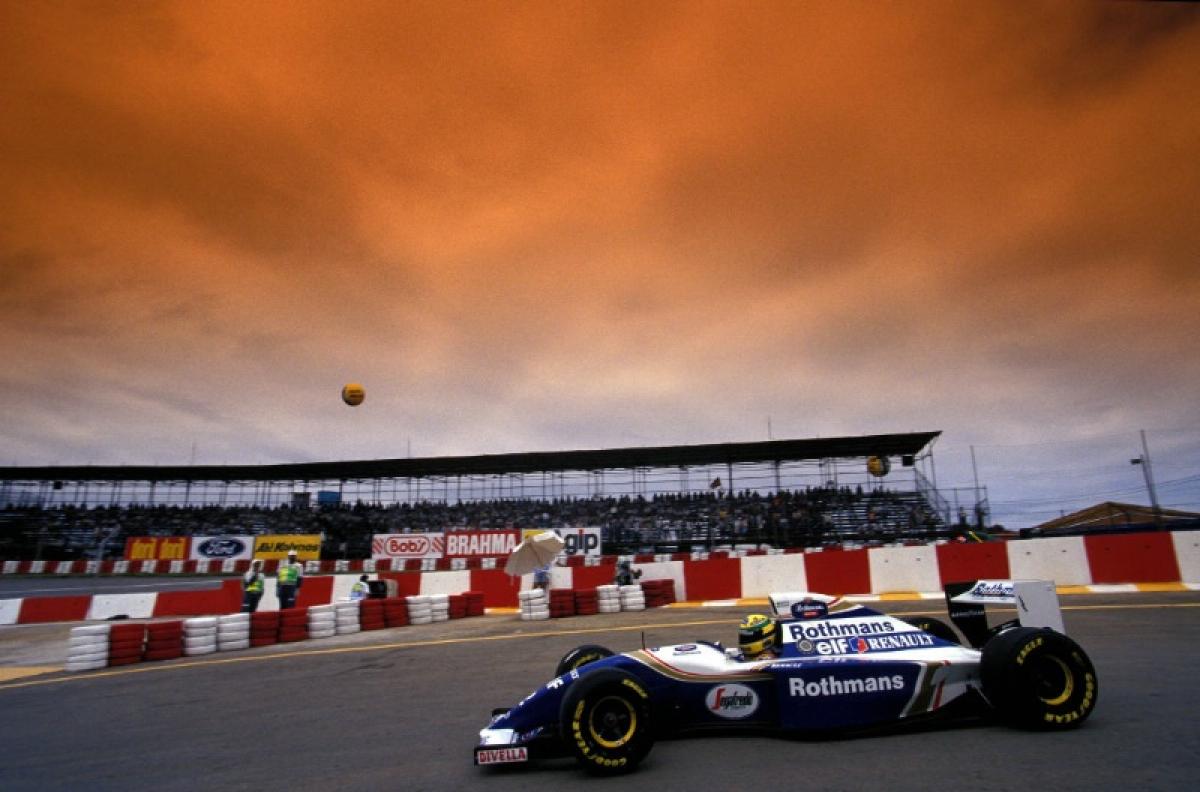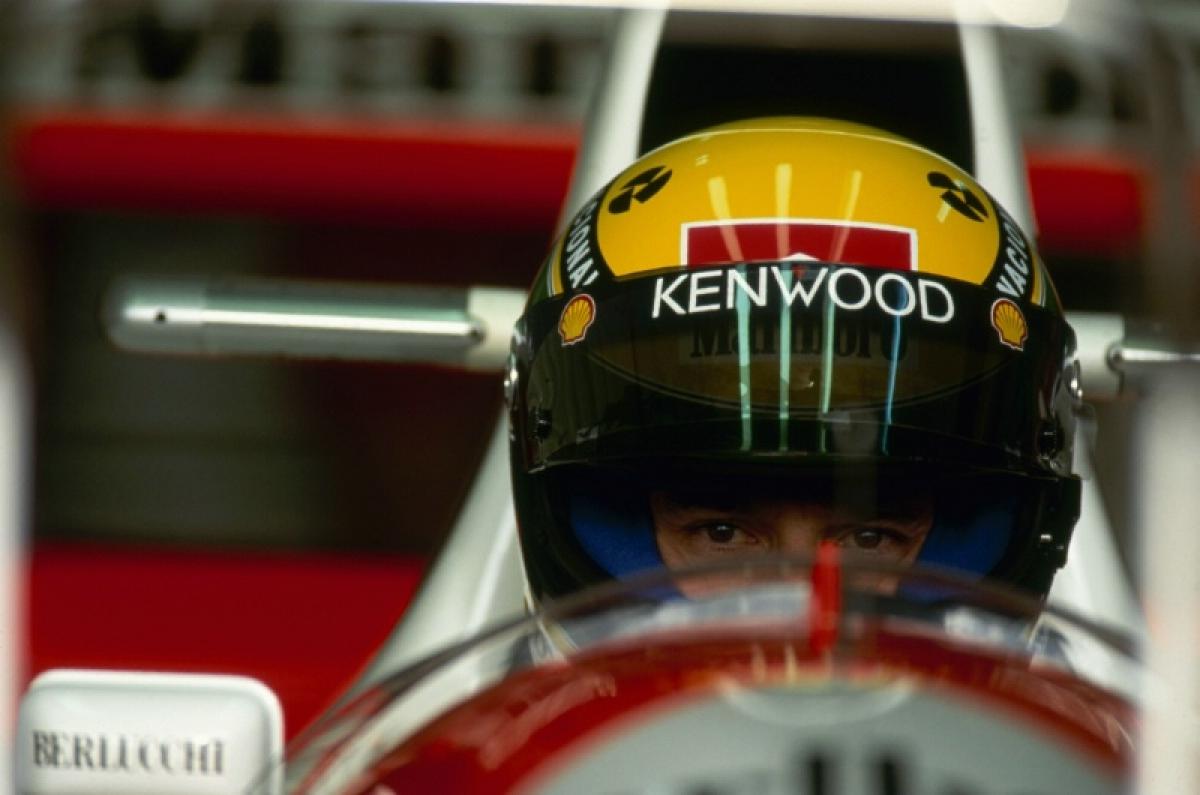Remembering Ayrton Senna: Ron Dennis on their time together in F1

'It's hard to distinguish one bit of awesomeness from another'
Ahead of the 20th anniversary of Ayrton Senna's death, Ron Dennis - one of the people to have worked most closely with the triple world champion - spoke to selected media including Crash.net about his memories of the Brazilian.
While many people will have their own standout moments which define how good Senna was to them - be it qualifying at Monaco in 1988, the first lap at Donington or taking Alain Prost out at the start in Suzuka - Dennis said what made Senna great is that there were too many moments for him to pick from.
"Ayrton's qualifying laps were always breathtaking," Dennis said. "He was so awesome, it's hard to distinguish one bit of awesomeness from another. He was a great guy."
Senna's record at McLaren was remarkable as he won 35 of his 96 race with the team - more than one in three - and took 46 pole positions. However, for Dennis, winning was what they were paid to do, and it's another aspect of his time with Senna which stands out for him, which all started with the appointment of a new team-mate.
"Gerhard [Berger] gave me the perfect weapon to deal with Ayrton because he brought humour into the team. I would say the concept of telling a joke and Ayrton laughing at it was not even possible before Gerhard joined the team, but then that created a massive ice breaker."
And it was Berger's arrival which led to - in Dennis' opinion - some of the best times of the Senna era at McLaren. On what he misses the most, Dennis says: "Fun, really.
"Because most of the time it was only Gerhard, myself and Ayrton ... You remember the fun, that was the good bits.
"These days people say 'well, do you remember winning?', actually no, that's like doing our job. It is what it was all about. Not only the fun, it was the sophistication of the fun. The practical jokes used to get to such fever pitch and the tendency was to affect the practical joke and then wait for the reaction. Inevitably it wouldn't be instant, it would be the delayed reaction.
"Of course, the skillset was to not even admit to it having happened. So occasionally they would be waiting if it was something that had been plotted together against me, they would be waiting for a reaction.
"We were staying in one of the most sophisticated hotels in Italy. Putting aside all the detail, just think of the scale of wallpapering a room with pornographic material, and coming back to the room and thinking 'Oh my goodness'.
"Finding a solution to that was not that easy because it wasn't done without damaging the fabric of the room, and it didn't go down too well but obviously you have got huge quantities of this literature that you had to find a solution to getting rid of.
"Fortunately that evening Philip Morris had decided to entertain with an escapologist who duly chained himself up after having a straitjacket put on him, they threw him in a swimming pool and he subsequently drowned, and I only laugh about it because they managed to drag him out fast enough to get him to hospital.
"At the end of the dinner he sort of came in and went 'Ta Da! I'm still alive!' At the time of course it was a fantastic distraction from the fact that I had to somehow decontaminate my room. Needless to say one of the group - let's put it that way - got back to his room that night and there was nothing in it. Nothing. No furniture, no clothes, nothing.
"That was just one grand prix weekend, and of course at the time it was all meant to be deadly serious, but this is what lightened [Senna] up. He didn't have it in his childhood. Inevitably, for some time he was 'I can't do it, I'm not going to do that' and suddenly there was some opportunity - almost certainly provoked by 'why don't you do this for me? Why don't you get even by doing this?' - and he then got in to it; that was good fun. So I remember the laughter and the fun."
Dennis also found some of Senna's weaknesses to be the source of amusement, reminiscing that a driver who strapped himself so tightly in to the car before winning in Brazil for the first time struggled with any pain outside of the cockpit.
"I remember in Mexico (1991), Ayrton made a rare mistake and inverted himself into the gravel trap and the car was upside down and no one really knew how he was. He was taken to the medical centre and I could hear him screaming with pain. Suddenly he stopped and I thought 'oh God, is he going to be able to race?' You think that way: you don't think 'is he hurt?' you think 'is he going to be able to race?' It's the first thing that you think as a team manager.
"(F1 doctor) Sid (Watkins) came out of the medical centre with a smile on his face. I said, 'how is he?' and he said, 'he's fine, he's not hurt. He's just a little shaken up'. I said I had heard him screaming, and he said he had a big stone stuffed in his ear, where gravel had gone right up his helmet and into his ear and was giving him a lot of pain.
"You think about that, to me it was funny. His actual pain tolerance was quite an interesting part of his make-up. He had a degree of tolerance when he was driving, but less so when he wasn't driving. He was very conscious of pain outside the car."
One time that Dennis did not find so funny, however, was at Suzuka in 1990 when Senna and Prost collided at the start of the race. Yet such an incident highlights for him just what kind of a man Senna was.
"I was looking at all the traces, the brake and the throttle pedals, and you didn't need to be Einstein to work out what had happened. He came back and I said 'I'm disappointed in you.' He got it. I didn't have to say any more. It was one of his rare moments of weakness. I don't think it was anything that he was particularly proud of, but it was the finishing touch when pole position was on the wrong side of the road.
"He said, 'there's no way I'm able to get to that first corner first. And if I get to that first corner and I'm not able to get through, I won't be exiting it.' So it wasn't a great moment, but he had very few lapses in his life and he was incredibly principled and a great human being."
So, why does Dennis believe Senna is rated as the greatest driver ever to have lived by so many?
"I think it's because he was so good for all of the period he was on the planet. I can see no positives in the fact that he had an accident and lost his life, but what you didn't see is any decline. You remember he was just unbelievably competitive and then, boom, he's not there."







